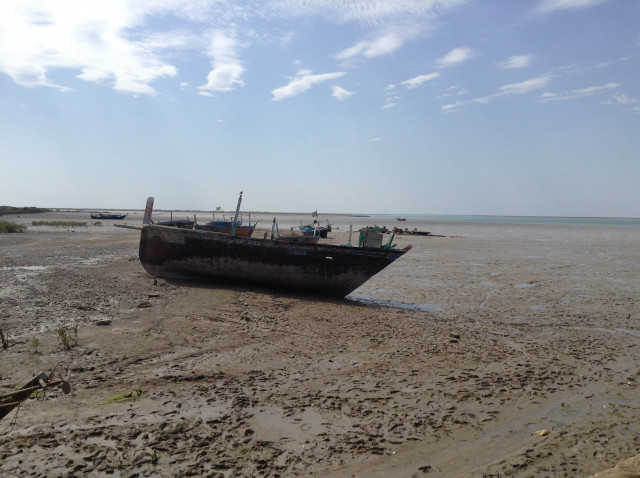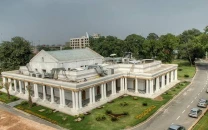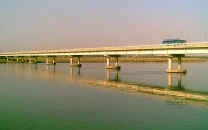Call for plantation to fight climate change
Speakers say human activities leading to habitat loss, degradation

Speakers have called for increasing the plantation of trees, construction of sea banks, decreasing the numbers of illegal tube wells, installing the metering system on the outflow of water at every level and mass awareness to fight the climate change challenges.
In this regard, the Development Communications Network (Devcom-Pakistan), a local NGO, launched the “National Climate Rapid Response Executive Brief (NCRR)” on Saturday.
The brief urgent steps shall be taken for local corrective measures to stop the local deforestation, water degeneration, over-harvesting of underground water and change in the land use of green and agricultural land.
Devcom-Pakistan Executive Director Munir Ahmed said the objective of the executive brief was to urgently highlight the fast-rising human security challenges and inaction of government authorities. Through this brief, he said the parliamentary committees were urged to push climate action forward more vigorously.
Talking about the environmental degradation and climate change governance in Pakistan, WWF-Pakistan Director-General Hammad Naq Khan said that Pakistan was in the midst of a climate crisis. “Currently, we are facing an intense heatwave across the country that threatens livelihoods, food security and collective well-being. We are seeing regular occurrences of glacial lake outburst floods. Episodes of riverine flooding, part and parcel of our landscape, are being exacerbated by global warming. Moreover, biodiversity is also at risk as can be seen with the recent fires that devastated parcels of the precious chilghoza forests in Balochistan,” he said.
“Environmental degradation continues to affect our natural environment and our communities. The quality of the air we breathe is degraded, our waterways are polluted, and the land is degraded by improper disposal of solid and hazardous waste, he said.
Karakoram International University, Gilgit, Assistant Professor and IUCN Pakistan Biodiversity Expert Dr Saeed Abbas mentioned that over the last one decade the frequency as well the intensity of floods, GLOFs (glacial lake outburst flood), rock sliding, avalanches, landslips, earthquakes have been reported to be increased four times higher as compared to last 30 years. He said that the main reasons for this effect were the presence of emerging industrial activities in neighbouring China and increasing vehicular pollution in Pakistan, India and China resulting in the penetration of monsoon residues into the high Himalayas.
“Mitigation measures though on a smaller scale, under different government and private sector projects and programmes, are being implemented but what GB calls for to cope with these environmental issues is to develop and implement a robust and multi-hazard preparedness and disaster risk reduction program and enhance the adaptive capacity of all stakeholders including the communities,” he said.
Environment and community expert Naseer Memon said that Sindh was particularly affected by various manifestations of climate change such as increased variability of river flows and floods, heat waves and drought. Sea level along the Karachi coast has risen approximately 10 centimetres in the last century and is expected to further rise by 60 centimetres by the end of the century to threaten the low-lying coastal areas south of Karachi toward Keti Bander , he said.
Published in The Express Tribune, June 12th, 2022.



















COMMENTS
Comments are moderated and generally will be posted if they are on-topic and not abusive.
For more information, please see our Comments FAQ